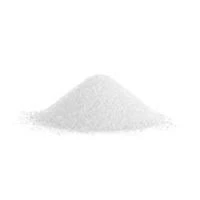
ammonium phosphate fertilizer
Ammonium Phosphate Fertilizer An Essential Nutrient for Crop Growth
Ammonium phosphate fertilizers are vital for modern agriculture, playing a crucial role in enhancing soil fertility and promoting plant growth. These fertilizers are primarily composed of ammonium (NH4+) and phosphate (PO4^3-), two essential nutrients that are crucial for the healthy development of plants. The combination of these nutrients not only supports immediate growth but also contributes to the long-term health of the soil.
One of the key benefits of ammonium phosphate fertilizers is their ability to provide a readily available source of nitrogen and phosphorus. Nitrogen is an essential element for plant growth, vital for the synthesis of amino acids, proteins, and chlorophyll. Phosphorus, on the other hand, plays a critical role in energy transfer, photosynthesis, and the formation of nucleic acids. When plants receive adequate amounts of these nutrients, they tend to grow more vigorously, produce higher yields, and exhibit enhanced resistance to diseases.
In agricultural practices, ammonium phosphate is often used in the form of monoammonium phosphate (MAP) or diammonium phosphate (DAP). MAP contains a higher percentage of phosphorus, whereas DAP provides a balanced nitrogen and phosphorus ratio. Farmers often choose between these two based on the specific needs of their crops and the nutrient content of their soil. The application of these fertilizers is typically done at planting time or as a side-dressing during the growing season.
ammonium phosphate fertilizer

Soil testing is an essential process before applying ammonium phosphate fertilizers
. Conducting a soil test allows farmers to understand the existing nutrient levels and pH, ensuring that they apply the right amount of fertilizer needed for their crops. Over-application can lead to nutrient runoff, which is not only wasteful but can also harm the environment by contaminating water sources.In addition to improving crop yields, ammonium phosphate fertilizers play a role in enhancing soil structure and promoting microbial activity. Healthy soil microbiomes are essential for nutrient cycling, and fertilizers can stimulate the growth of beneficial microorganisms. These microorganisms contribute to the overall health of the soil, creating a sustainable system that supports continuous agricultural production.
While ammonium phosphate fertilizers offer numerous advantages, responsible use is paramount. Farmers should adhere to recommended application rates and timings to avoid environmental issues such as nutrient leaching and water pollution. The use of modern technologies, such as precision agriculture, can help optimize fertilizer application, ensuring that crops receive the nutrients they need while minimizing environmental impact.
In conclusion, ammonium phosphate fertilizers are indispensable for successful agricultural practices. By supplying essential nutrients, they enhance crop productivity and soil health. Awareness and education surrounding their use can lead to more sustainable farming practices, ultimately benefiting both farmers and the environment. As the global population continues to grow, the role of ammonium phosphate fertilizers in feeding the world will be increasingly significant, making it crucial to utilize these resources wisely and efficiently.
-
The Safety Challenges of Ammonium Nitrate FertilizerNewsJun.26,2025
-
The Critical Role of Mining ChemicalsNewsJun.26,2025
-
Shelf Life of Glacial Acetic Acid Food GradeNewsJun.26,2025
-
Enhancing PVC Longevity with 1,2,3-Benzotriazole InnovationsNewsJun.26,2025
-
China’s Dominance in Food Additive ProductionNewsJun.26,2025
-
Can Aluminum Hydroxide Replace More Toxic Alternatives?NewsJun.26,2025
-
PE and PP Plastics with Benzotriazole AdditivesNewsJun.12,2025
Hebei Tenger Chemical Technology Co., Ltd. focuses on the chemical industry and is committed to the export service of chemical raw materials.
-

view more DiethanolisopropanolamineIn the ever-growing field of chemical solutions, diethanolisopropanolamine (DEIPA) stands out as a versatile and important compound. Due to its unique chemical structure and properties, DEIPA is of interest to various industries including construction, personal care, and agriculture. -

view more TriisopropanolamineTriisopropanolamine (TIPA) alkanol amine substance, is a kind of alcohol amine compound with amino and alcohol hydroxyl, and because of its molecules contains both amino and hydroxyl. -

view more Tetramethyl Thiuram DisulfideTetramethyl thiuram disulfide, also known as TMTD, is a white to light-yellow powder with a distinct sulfur-like odor. It is soluble in organic solvents such as benzene, acetone, and ethyl acetate, making it highly versatile for use in different formulations. TMTD is known for its excellent vulcanization acceleration properties, which makes it a key ingredient in the production of rubber products. Additionally, it acts as an effective fungicide and bactericide, making it valuable in agricultural applications. Its high purity and stability ensure consistent performance, making it a preferred choice for manufacturers across various industries.











